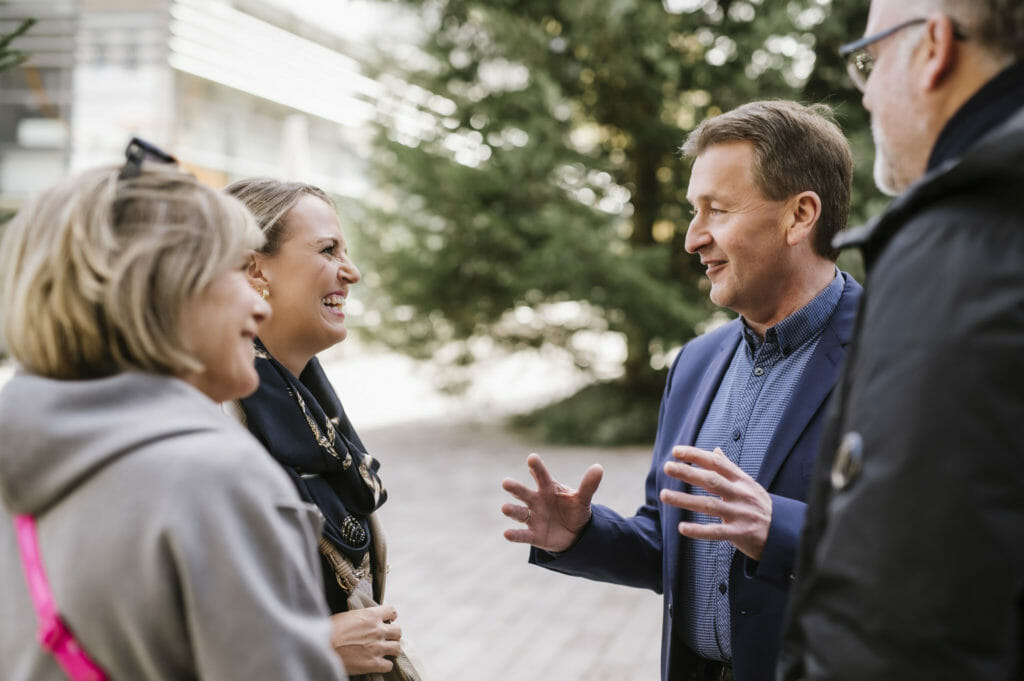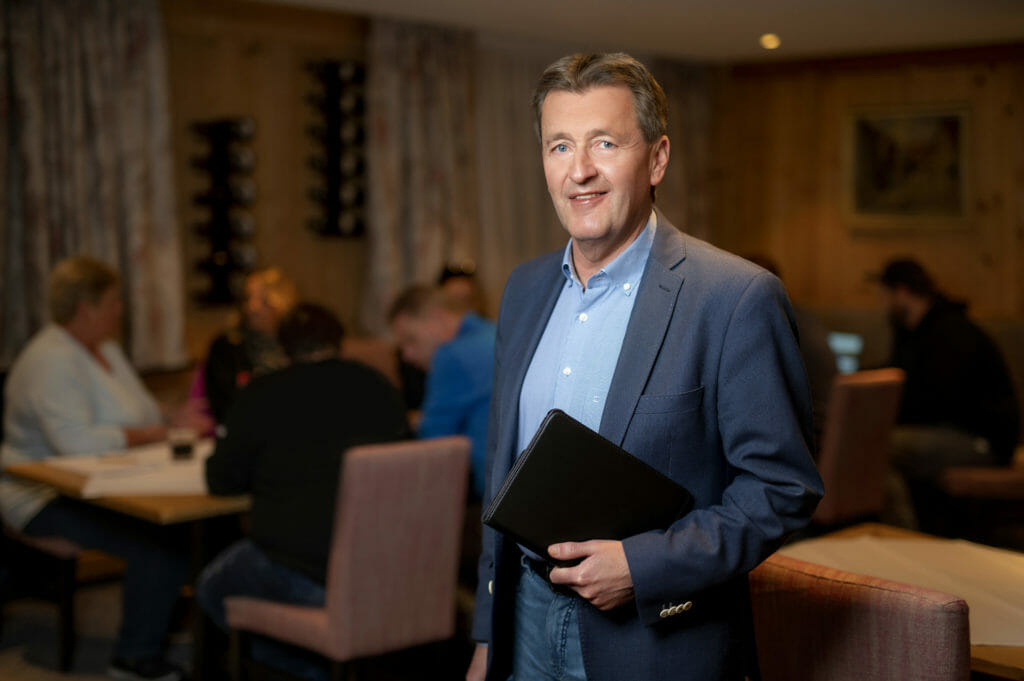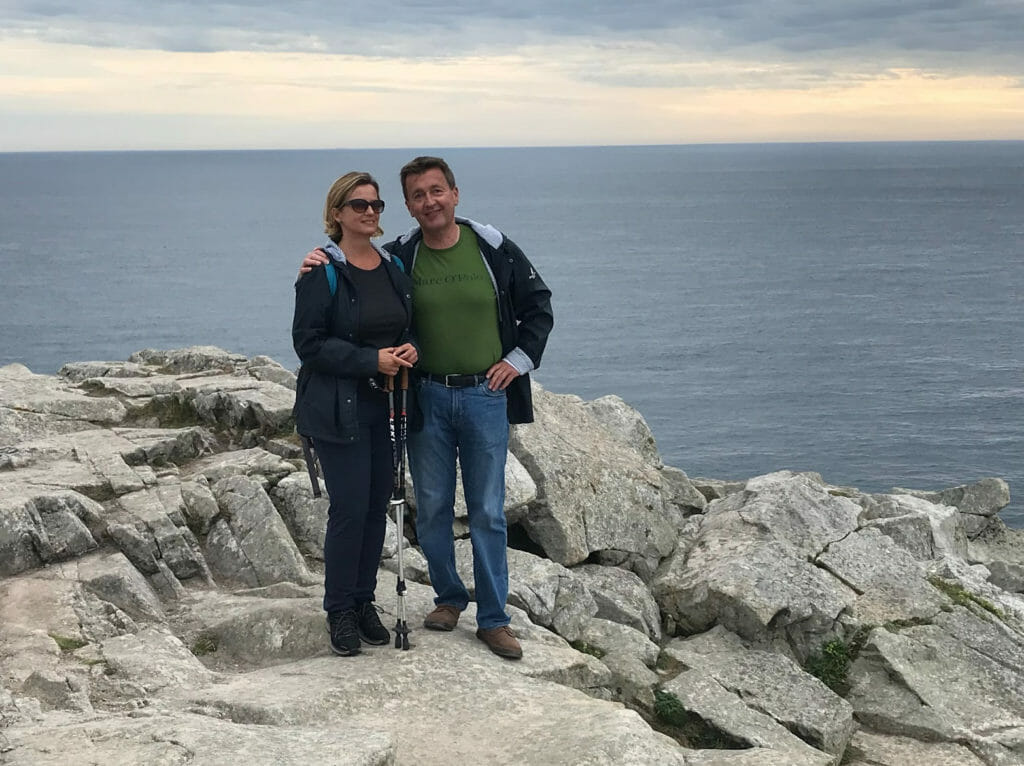For a good future of our city it is important to create good quality of life for all generations. The lifestyles of our residents have changed, in some cases profoundly, in recent years. A forward-looking municipal policy must take this into account: all life models are present in our city and must be respected and promoted: From the traditional family to single households, student shared flats to patchwork families must be taken into account in the future plans of the city administration. The administration does not have to prescribe life plans, but to ensure that Albstadt offers quality of life and opportunities for development for all generations and life models.
Enough play areas and meeting places children and young people
The young generation represents the future of our city. That is why it is right and important that municipal youth participation in particular involves children and young people in the community of our city at an early stage. The youth participation program launched through the Children and Youth Office has already provided valuable services in recent years and must be intensified and further expanded. Playgrounds, meeting places and suitable leisure activities must be available for children and young people in all parts of the city in order to promote identification with our city at an early age.
Implementation of a future-oriented family policy, creation of suitable living space
Above all, a good quality of life also requires that families find suitable and affordable housing in Albstadt without having to migrate to the surrounding area. This is also a decisive competitive advantage of our city when it comes to retaining skilled workers in Albstadt and attracting new skilled workers from out of town together with the local economy. A future-oriented family policy in the city must therefore also work together with business, industry and commerce to ensure that such living space is available. In the future, it will be necessary to examine whether new residential projects can also be realized together with local industrial companies. The municipal housing company as-wohnbau must play a key role in this: Both in cooperation with other investors and developers, and with its own projects, the aim is to create ecologically compatible and sustainable housing – expressly not for social purposes alone, but especially for the city’s working middle class. Courage is needed for new projects and new tasks.
Affordable housing also requires that sufficient land be available for residential development. A responsible building land and housing policy today must follow the principle of “internal development before external development”. A proliferation of land sealing must be counteracted. This means that it is first necessary to take a close look within the local districts at where further development opportunities exist for future ecologically and energy-saving housing. However, a sustainable housing policy must not exclude the designation of new building land in peripheral areas and between the individual districts for ideological reasons: Against the background that there is already hardly any building land available in individual districts, it is the task of the city administration to examine where new building opportunities can be developed in the most environmentally friendly way possible. This also serves the future viability of the city. The city administration’s future building land policy must become more flexible here: Where it appears sensible and financially feasible, the city administration must also make use of existing rights of first refusal when selling land and old buildings in order to ensure sensible and high-quality urban development. When designating new building areas, the aspect of environmental protection, ecology and energy efficiency must be taken into account. However, this also means that the land policy of the city administration must be more transparent, offensive and economical. It is necessary not only to react when it comes to land policy, but to take an active role in accordance with the principles of free enterprise. It is particularly important, especially in today’s economically difficult times, to make use of existing subsidy opportunities and to provide a sufficient range of advice – together with local banks – for prospective property buyers.
More senior-friendly infrastructure for our city
In addition, the interests and needs of our older generation, which has contributed significantly to the development of our city, must be taken into account to a greater extent than before. Therefore, it is necessary to ensure that the infrastructure of our city becomes even more senior-friendly in the future. This in a variety of individual areas. In addition to barrier-free city centers and public transportation that takes the interests of older citizens into account, this also increasingly includes the promotion of housing projects suitable for senior citizens and the creation of corresponding meeting opportunities. In addition, the city administration must ensure wherever possible – if necessary also in cooperation with our local clinics – that sufficient care, close to home, is maintained in our city, both with family doctors’ practices and with specialists. In today’s world, this is a difficult task, but one that must be tackled with a view to the future viability of the city. This can only be done together: The city administration is called upon to work together with the district and the representatives of the medical profession to ensure that the operation of medical practices in our city becomes attractive again and that the Association of Statutory Health Insurance Physicians recognizes the existing demand – especially among specialists.
However, not everyone is concerned with “senior-friendly city” – especially the group of fellow citizens with physical or mental handicaps and their relatives often have too little lobby in local politics. This must change: Quality of life in the city also includes making public spaces, especially buildings, facilities and public transport, accessible to people with disabilities. This requires an open stocktaking together with those affected: Where do we stand and what measures are urgent? This requires a clear bundling of competencies with regard to “handicapped accessible city” in the administration and central contact persons in the authority for the concerns concerned.
In addition to medical care – not only for the elderly – it is also important to ensure that shopping facilities are available for daily needs in all districts as close to home as possible. The trend towards “greenfield supermarkets” has meant that there are often gaps in the supply of shopping facilities, particularly in the larger districts in the inner city area. The city administration cannot operate its own stores, but it is responsible for creating framework conditions to ensure that such shopping opportunities close to home will be available again in the future.
Safety and cleanliness
Quality of life always includes the aspect of “safety and cleanliness” in the city. Here, too, deficits have emerged in recent years, especially in the larger parts of the city. This must be resolutely countered.
The subjective feeling of safety of all residents is decisive for the quality of life. That is why it is crucial to strengthen this sense of security in the city by ensuring that the administration’s focus is less on traffic surveillance and traffic control, and more on ensuring the sense of security. It is therefore right to create a new municipal public order service with powers similar to those of the police. In close cooperation with our police in Albstadt, we must ensure that “areas of insecurity” are eliminated in the future. This is achieved through regular checks by security personnel, as well as through structural measures. It must no longer be the case that individual – important – areas of the city centers (especially in Ebingen) and especially also at night times become spaces of insecurity. Both are needed here: on the one hand, the necessary toughness toward those who contribute to this sense of insecurity. On the other hand, sufficient prevention and social work by the city to provide assistance to affected problem groups and to defuse conflict potential. All this costs money – but in terms of the quality of life in our city, this is a good investment for the future that must be made.
Therefore, the following applies: The population’s lacking sense of security must be strengthened again. The long-standing statute regarding fines for littering downtown must not just be on paper, but must now be implemented. For this purpose – as well as for the surveillance of public space, especially at night – the public order office, the police and the private security forces to be involved must cooperate and eliminate zones of insecurity. In this respect, municipal personnel may have to be withdrawn from traffic monitoring and deployed in this area. Safety of citizens in the city is a priority.
The aspect of “cleanliness” cannot be separated from “safety”. Here, too, there has been a clear need for action in recent years. For a livable city also belongs cleanliness of public space. Against this background, it is necessary to prevent soiling in this area as well, on the one hand, through regulatory measures and, on the other hand, to ensure greater cleanliness with municipal personnel where this is necessary. The neglect of public spaces must be prevented to a greater extent – also by deploying more personnel. It is therefore necessary and right to invest in the quality of life of all our fellow citizens.
Upgrading of the city centers
In addition, further measures are needed to upgrade the city centers – especially in Ebingen. With the promised support from the federal funds “Zukunftsfähige Innenstädte und Zentren” (sustainable inner cities and centers), many things will also become possible in Ebingen that are urgently needed: The inner city of Ebingen – especially also the “Hufeisen” area – urgently need change that will make the inner city appear contemporary again. This on the one hand with a better supply structure in terms of trade, gastronomy and services. On the other hand, also by creating more green spaces, play areas for children and places that are also available to clubs and cultural operators for events. This is in harmony with the needs of trade, services and crafts, on the one hand to provide attractive areas to linger, and on the other hand to provide good access to the city center by public transport and individual traffic. This also necessitates the continued provision of parking for downtown employees as well as residents and visitors. In order for more people to visit the city centers again, there must be a good mix between cultural offerings, a diverse and civic gastronomy, as well as other visitor magnets: It is to be considered to accommodate the media center centrally at a suitable location in the city center of Ebingen in order to add another aspect of revitalization. Likewise, this includes a revitalization of the “Horseshoe” with new housing opportunities, employment opportunities and retail stores to be settled. Here, too, the city administration must take appropriate measures to ensure the right framework conditions.







